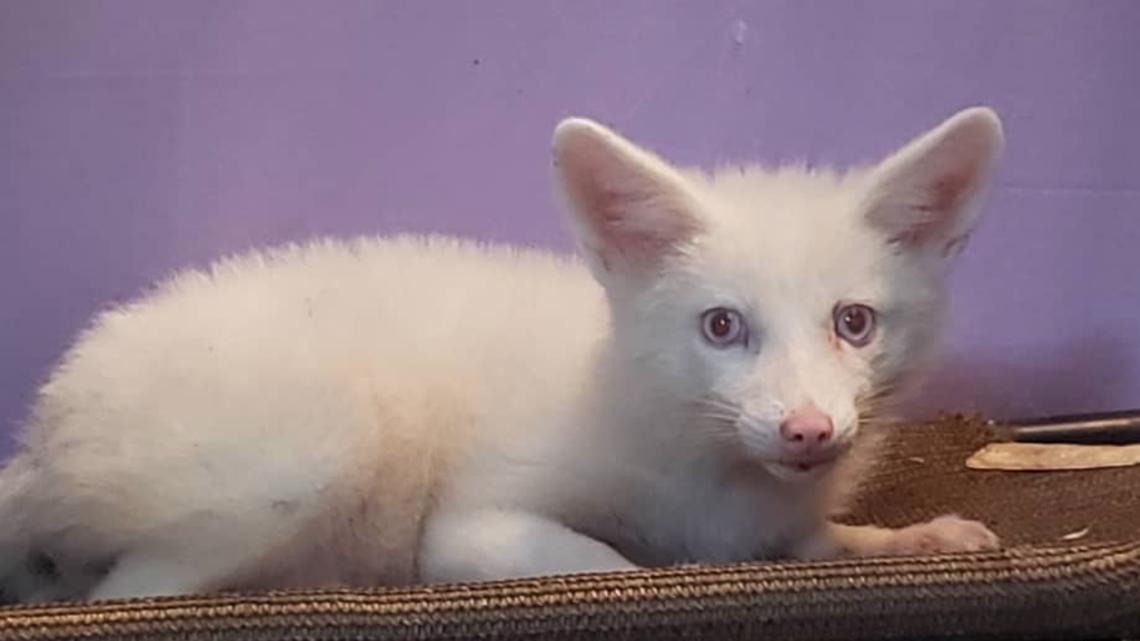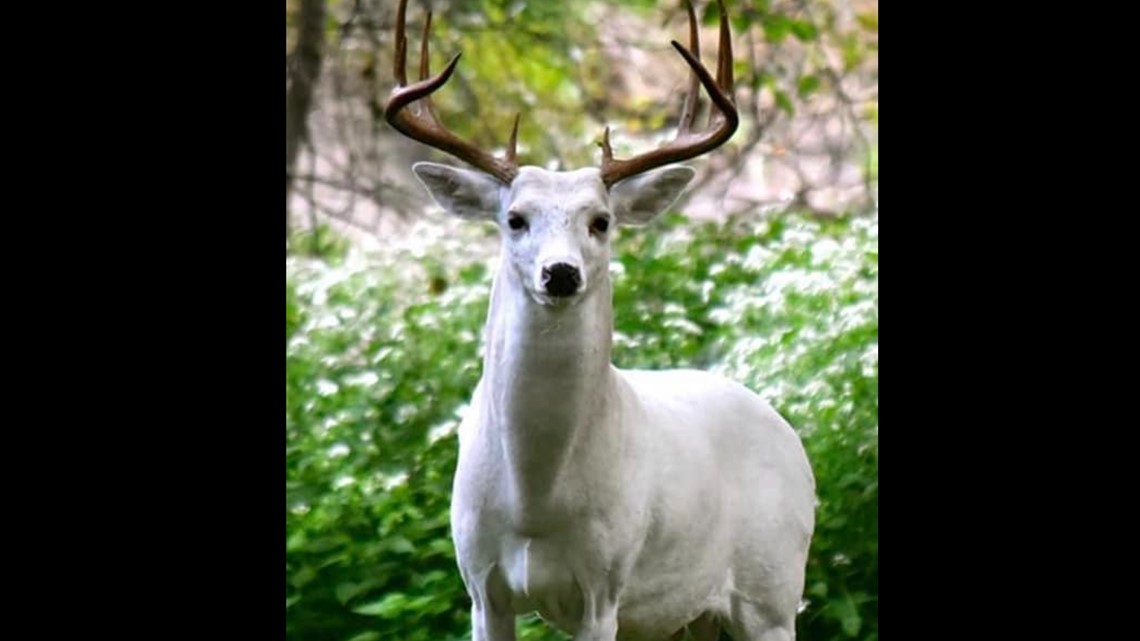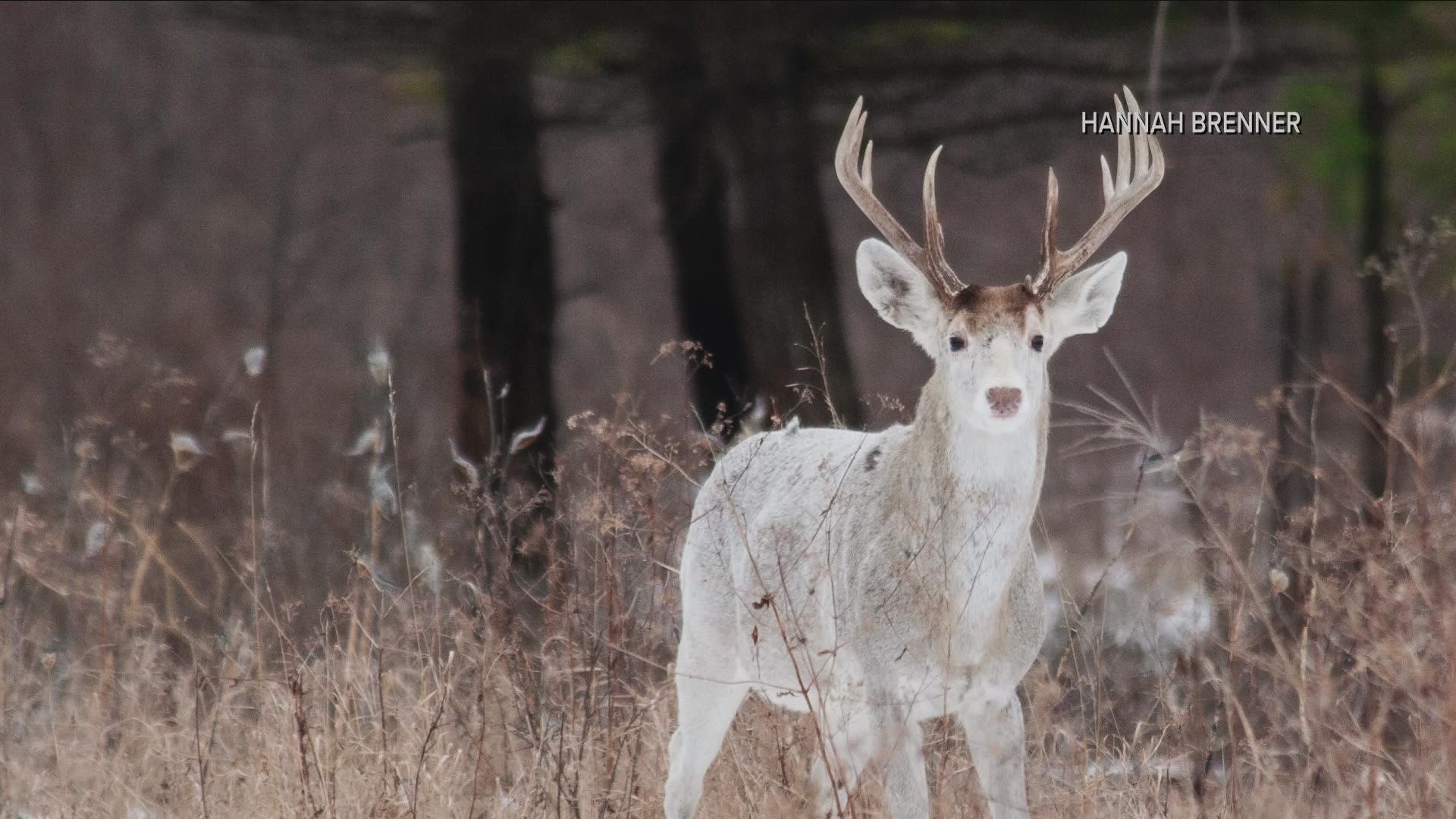BUFFALO, N.Y. — Albinism and Leucism are caused by a lack of melanin, which results in a full or partial absence of color. Albino animals are extremely rare.
Only one in every 10,000 mammals, and 1 in 30,000 bird births produce an albino. Tanya Lowe, Curator and Education Director at Hawk Creek Wildlife Center, explains.
"Melanin is the pigment that causes the color of our hair, our skin, our eyes. So, in animals, this can also result in the colors of their feathers and scales and fur."


Leucism, still rare, but less so than Albinism, has some noticeably different effects.
"So they still do have some pigmentation." Says Lowe. "And this can result in a lot of those animals that appear as very faded in color, so they don't have that natural darker coloration, or they may even have splotches."


Another way to tell the difference between the two is to look at the color of their eyes.
"You can have a Leucistic animal that is completely white, but has normal colored eyes." Lowe says that "When you have those red eyes, that is an indicator of an Albino, because their irises are actually clear, so you can see the blood vessels in the eyes which gives the red eye appearance."


In addition to physical issues such as poor eyesight and weaker feathers, Lowe says these animals in the wild face other hurdles.
"Animals are a certain color for a reason, and predominately that is going to be for camouflage, whether it's for a prey animal that's using its camouflage to blend in and hide from predators, or a predator that's using its camouflage so that it can sneak up on its prey. And so there can be a disadvantage for these animals, but we do see these animals overcoming these disadvantages."


White animals have been historically revered by many cultures. Native American people consider many to be sacred. David George-Shongo, of the Seneca Nation, tells why. "Any animal that comes out white, especially with albino eyes and stuff like that, because of their rarity, there's something special about it. They've always been considered sacred."
So if you happen to see a white animal in the wild, Shongo believes you should consider yourself fortunate.
"Because some of them are endowed with prophecies, it's thought that their message is from the Creator, above."
Lowe agrees." It's a unique opportunity to get to see something that you will probably not get to have another opportunity to see."

